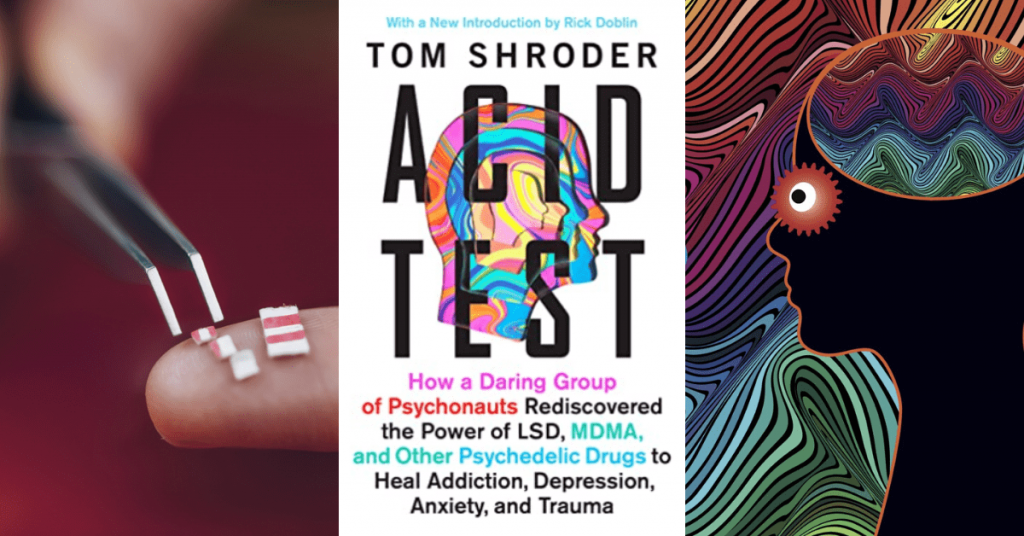 With an upcoming fMRI study in the United Kingdom, an attempt is being made to outline the neurobiological mechanisms that are hypothesized to underlie the favorable outcome of MDMA-assisted psychotherapy in posttraumatic stress disorder (PTSD).
With an upcoming fMRI study in the United Kingdom, an attempt is being made to outline the neurobiological mechanisms that are hypothesized to underlie the favorable outcome of MDMA-assisted psychotherapy in posttraumatic stress disorder (PTSD).
Earlier studies found that after just a few treatment sessions with MDMA in addition to psychotherapy, there was a significant short [fusion_builder_container hundred_percent=”yes” overflow=”visible”][fusion_builder_row][fusion_builder_column type=”1_1″ background_position=”left top” background_color=”” border_size=”” border_color=”” border_style=”solid” spacing=”yes” background_image=”” background_repeat=”no-repeat” padding=”” margin_top=”0px” margin_bottom=”0px” class=”” id=”” animation_type=”” animation_speed=”0.3″ animation_direction=”left” hide_on_mobile=”no” center_content=”no” min_height=”none”][1] and long [2] term improvement of PTSD symptomatology in patients that were resistant to regular psycho- and/or pharmacotherapy [3]. Up to today, not much is known about the factors that contribute to the success of this form of treatment. Several researchers suggest that MDMA, o.a. by temporarily reducing fear and by easing interpersonal contact, facilitate the therapy on a psychological level [4], but about the neurobiological foundations remains to be speculated.
By using fMRI, dr. Ben Sessa and his research team at Cardiff University will try to image the manifestation of MDMA in PTSD patients. To capture the effects of the compound in isolation, the patients will not receive any psychotherapy during this study.
The research proposal is currently waiting for approval of the Committee of Ethics.
[1] Mithoefer, Wagner, Mithoefer, Jerome, & Doblin (2011)
[2] Mithoefer et al. (2012)
[3] A similar study from Oehen, Traber, Widmer, & Schnyder (2013) did not reach significance on the primary measurement (p = .066), a diagnostic tool to assess PTSD symptomatology, though at a subjective level the patients indicated to have some relief from their former complaints. Bouso et al. (2008) couldn’t draw any firm conclusions on their data of the first MDMA-assisted psychotherapy study in PTSD, due to a sudden unexpected cancellation of the study and the consequencing small study sample.
[4] Bouso, Doblin, Farré, Alcázar, & Gómez-Jarabo (2008), Mithoefer et al. (2011), Oehen et al. (2013)
References
Bouso, J. C., Doblin, R., Farré, M., Alcázar, M. A., & Gómez-Jarabo, G. (2008). MDMA-assisted psychotherapy using low doses in a small sample of women with chronic posttraumatic stress disorder. Journal of Psychoactive Drugs, 40(3), 225–36. doi:10.1080/02791072.2008.10400637
Mithoefer, M. C. M., Wagner, M. M. T., Mithoefer, A. A. T., Jerome, L., Martin, S. F., Yazar-Klosinski, B., … Doblin, R. (2012). Durability of improvement in posttraumatic stress disorder symptoms and absence of harmful effects or drug dependency after 3,4-methylenedioxymethamphetamine-assisted psychotherapy: a prospective long-term follow-up study. Journal of Psychopharmacology (Oxford, England), 27, 28–39. doi:10.1177/0269881112456611
Mithoefer, M. C., Wagner, M. T., Mithoefer, A. T., Jerome, L., & Doblin, R. (2011). The safety and efficacy of {+/-}3,4-methylenedioxymethamphetamine-assisted psychotherapy in subjects with chronic, treatment-resistant posttraumatic stress disorder: the first randomized controlled pilot study. Journal of psychopharmacology (Oxford, England) (Vol. 25, pp. 439–452). doi:10.1177/0269881110378371
Oehen, P., Traber, R., Widmer, V., & Schnyder, U. (2013). A randomized, controlled pilot study of MDMA (± 3,4-Methylenedioxymethamphetamine)-assisted psychotherapy for treatment of resistant, chronic Post-Traumatic Stress Disorder (PTSD). Journal of Psychopharmacology (Oxford, England), 27(1), 40–52. doi:10.1177/0269881112464827[/fusion_builder_column][/fusion_builder_row][/fusion_builder_container]

 It’s no secret that psychedelic drugs have the ability to cast light on the miraculous reality hidden within our psyche. Almost immediately after the discovery of LSD less than a hundred years ago, psychedelics began to play a crucial role in the quest to understand the link between mind and matter. With an uncanny ability to reveal the mind’s remote frontiers and the unmapped areas of human consciousness, LSD and MDMA (better known as Ecstasy) have proven extraordinarily effective in treating anxiety disorders such as PTSD—yet the drugs remain illegal for millions of people who might benefit from them.
It’s no secret that psychedelic drugs have the ability to cast light on the miraculous reality hidden within our psyche. Almost immediately after the discovery of LSD less than a hundred years ago, psychedelics began to play a crucial role in the quest to understand the link between mind and matter. With an uncanny ability to reveal the mind’s remote frontiers and the unmapped areas of human consciousness, LSD and MDMA (better known as Ecstasy) have proven extraordinarily effective in treating anxiety disorders such as PTSD—yet the drugs remain illegal for millions of people who might benefit from them.
 With an upcoming fMRI study in the United Kingdom, an attempt is being made to outline the neurobiological mechanisms that are hypothesized to underlie the favorable outcome of MDMA-assisted psychotherapy in posttraumatic stress disorder (PTSD).
With an upcoming fMRI study in the United Kingdom, an attempt is being made to outline the neurobiological mechanisms that are hypothesized to underlie the favorable outcome of MDMA-assisted psychotherapy in posttraumatic stress disorder (PTSD).